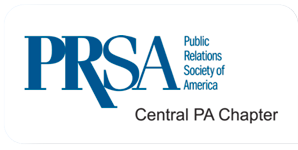A code of ethics is designed to give us a moral compass. As public relations professionals, this code should consistently guide our decisions.
When you first joined PRSA, you were presented with our professional association’s Code of Ethics and asked to abide by its principles. PRSA members who apply for the process of earning the Accreditation in Public Relations (APR) credential, and sit to take the computerized APR exam, are presented with PRSA’s Code of Ethics and asked to abide by it. PRSA members who apply for PRSA Fellows status are again asked to acknowledge their commitment to and demonstrate their actions incorporating the Code of Ethics.
The PRSA Code of Ethics is designed to remind us of our moral compass. Knowing and living up to the code’s values and provisions is imperative to our personal lives and our work. In our daily practice, we must ensure our employers or our clients know of our commitments to the code’s professional standards and how it applies to the work we do for them.
As public relations counselors, we have an obligation to rightly advise our employers and clients. We have a commitment to provide the truth earning the trust of their/our audiences.
Others in the communications arena have codes of ethics including journalists, photographers and broadcasters. Community and global service clubs also have codes of ethics. For members of Rotary International, the code is straightforward: Is it the TRUTH? Is it FAIR to all concerned? Will it build GOODWILL and BETTER FRIENDSHIPS? Will it be BENEFICIAL to all concerned? Many organizations even have codes of ethics specifically for their social media communities. (And, certainly, more should.)
At the core of each code is a clear moral compass: Saying the right thing, doing the right thing. Providing the truth; building and maintaining trust.
A code of ethics gives you a framework for and a degree of protection when making daily decisions in areas where there needs to be a right from wrong. Ethics help you choose between what we can do/say or what we should do/say and knowing what is fair and right. These compass points emerge from faith, legislation, societal security and recognized best practices. We frequently define these compass points as individual character, called virtue, or rules and obligations called duty. As public relations professionals, we must follow through with these compass points.
We all know people and organizations who profess a code of ethics. We know those who bend the standards or even ignore the standards of such a code. As a result, trust in government, the media, business, even non-government organizations, is in decline as noted in the Edelman 2021 Trust Barometer.
What is your responsibility to a code of ethics to gain trust? How will you react when those around you don’t seem to want to stick to the rigid standards of an ethical code? How will you defend your position on ethics when you are directly confronted? When given a choice to follow the code or face dismissal from the job you so love and maybe need, what will you do?
How have you let those you work with know you have a professional code of ethics? When you were hired, did you tell your prospective employer about your commitment to that code? When finalizing your commitment to a new client, how do you make it clear that by engaging your expertise, you will hold yourself and them to the PRSA Code of Ethics?
These are the big commitment moments… BUT. But, what about the hourly, daily, or not-so-dramatic or transparent moments when you have to make an ethical choice? How would you defend your reasoning? What are the outcomes of your actions relative to the trust of society, your client or employer, your profession and, most importantly, yourself? Will your action today allow you to sleep well tonight?
Should you be confronted with an ethical dilemma, you have resources to turn to. Our PRSA chapter is blessed with a higher-than-average number of APRs and PRSA Fellows who are committed to our Code of Ethics. Many have faced life- and career-changing ethical decisions. Reach out to them and ask for their confidential guidance.
Should you need a third-party to present on the need of ethics in public relations to your peers or organization, contact me.
Bob Saline, APR, Fellow PRSA earned his APR in 1990 and his Fellow in 2008. He has been a Rotarian for 22 years. Prior to retiring, he was co-founder and president and CEO of PRworks. You can reach Bob at bsaline@prworksinc.com.

